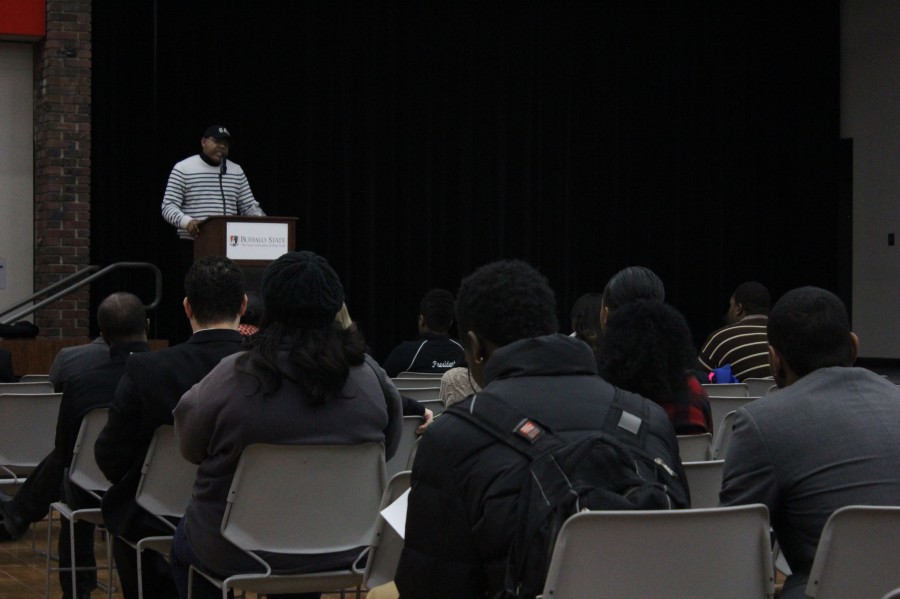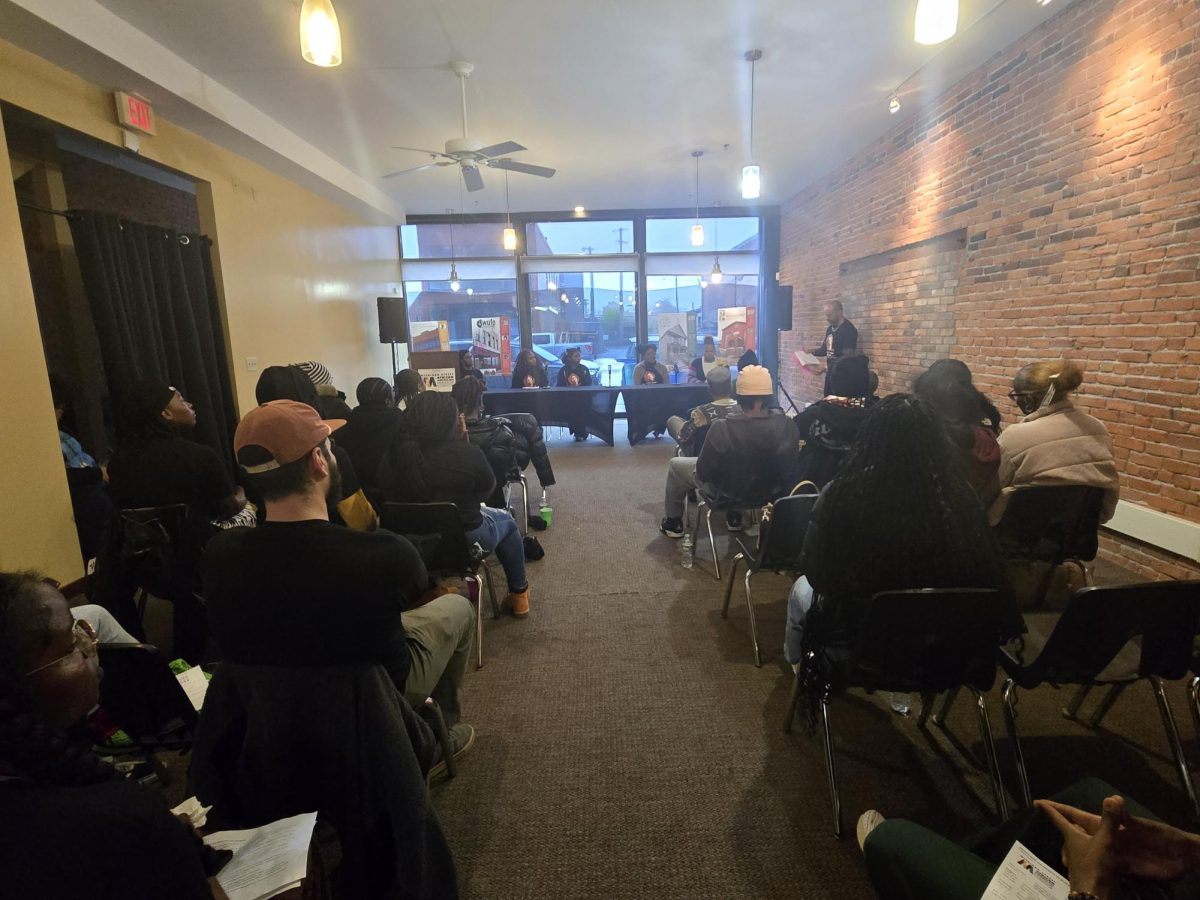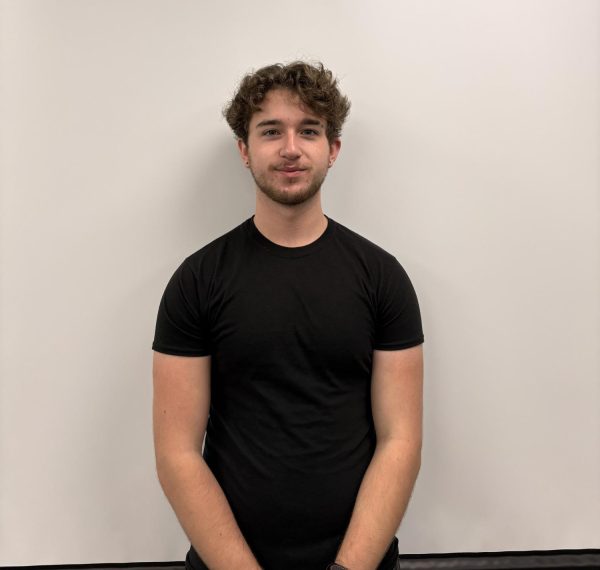Students celebrate legacy of MLK
February 4, 2015
Words are powerful elements that travel through time in the memories of individuals who hold them to a certain level of importance. Within them they have the ability to convey emotions to a certain extent that sometimes they are the fuel to ignite the fire behind history-making movements.
This past Thursday, the Office of Equity and Campus Diversity celebrated the legacy of Dr. Martin Luther King Junior in a short but yet powerful program entitled “Are You Making Your Mark?”
Associate professor of political science Anthony Neal graced the audience with an original poem, which, while written in 2007, shone light on issues past and present. “Both Endz” began with Neal’s harsh blowing into the microphone before his trademark soft voice filtered through the microphone with power and passion as he recites from the heart.
“WOOSPH! WOOSPH! WOOSPH! WOOSPH Shakur stands guard at the tomb of ‘The Unknown Souljah.’ Mothers who weep for your children, I wish I could hold yah. Victims and perpetrators are accused of the same crime. Generations incarcerated everyday say, ‘The guilty and innocent are both doing time.’ And to my people who are the color of my skin: Sometimes I wonder if we’ll ever win. We watch as the flamz begin to singe and this candle still burnz…it burnz from both endz.”
For Neal, his words within “Both Endz” aimed to shine light on all sides of inequality. “We have some intra-racial violence on ourselves and we also have violence that is perpetrated on us from outside of the community. So the candle is burning on both ends in terms on the internal problems and the external problems. Solving the internal problems would be great but in addition to that you have to solve the fear of being shot down by a police officer for really doing nothing.”
The poem opened the gate for the keynote speaker, Jerrly T. Christmas to step to the microphone and continue the program with equal passion and power. Christmas, who is a prosecutor, has deep roots in Huntsville, Alabama where he was born to his home in Saint Louis. This occurred in 1963, when King was moving to try and end segregation.
“Dr. King believed in direct action through non-violent means,” Christmas said.
“There is a movement in this country that does not want you to be entitled, they want you to be a consumer. If they are accustomed to getting a hundred percent of your money they don’t want that to stop. If it does, you stop the flow of money. So, if they allow you to get thirty percent that means they only get seventy percent. It’s in mainstream’s best interest to have us caught up on a dream as opposed to the real message that Dr. King was trying to say: you have written us a check with insufficient funds, you made these promises to us as American citizens. Dr. King came to Washington to say no, we want our God given rights. They want him to appear as only I have a dream and it’s beyond that,” Christmas said.
One key term that Christmas stressed was “black excellence.” This is a term that he uses to explain what he believes will be able to push the fight to bring end to injustice to another level.
“You have to give your all to everything that you do and demand quality. Many a time we will just let stuff go. We have to have a desire to know about Dr. King, actually go online and listen to the speech. Everything we have to do we have to push to do it at our best,” Christmas said.
Beyond the program, Dr. King’s legacy has opened doors in our own education system. Junior biology major Takisha Morancy shared her views on King’s impact on her education.
“I feel like Dr. King’s work showed me that whenever you strive towards something, if you work for it and fight for it you will get it,” she said.
Email: hewitt.record@outlook.com




